
 Reading, Short And Deep #134
Reading, Short And Deep #134
Eric S. Rabkin and Jesse Willis discuss The Tyger by William Blake.
Here’s a link to a PDF of the poem.
The Tyger was first published in Songs Of Innocence, 1826.
Posted by Scott D. Danielson

 Reading, Short And Deep #134
Reading, Short And Deep #134
Eric S. Rabkin and Jesse Willis discuss The Tyger by William Blake.
Here’s a link to a PDF of the poem.
The Tyger was first published in Songs Of Innocence, 1826.
Posted by Scott D. Danielson

 The SFFaudio Podcast #452 – Jesse, Scott, and Paul Weimer talk about The City And The Stars by Arthur C. Clarke
The SFFaudio Podcast #452 – Jesse, Scott, and Paul Weimer talk about The City And The Stars by Arthur C. Clarke
Talked about on today’s show:
We three met, “a reaction” to The Broken Sword by Poul Anderson, I wonder what these guys will think Jesse will think of this book?, idea filled, big ideas, explorations of societies, tons of imagination, successfully modeled my brain, idea after idea after idea, a neutered human, this weird society, the jester, how art works, fear blocked, cut off from the whole universe, reminiscent of Olaf Stapledon, this is Clarke’s Last And First Men, a rewrite of Against The Fall Of Night, Gregory Benford’s sequel, a rethinking of the original book, different Bach fugues, from a writing perspective, more to contribute, the British Interplanetary Society’s webpage, 2013, 1930s, the opening scene, 1935, six versions, Gnome Press, 1953, 1956, the Wikipedia entry, to showcase what he had learned about writing and information processing, in the individual scenes, Diaspar and Lys, the anecdote, different enough, the robot with the mental block is solved in two different ways, to FMRI the robot, robot psychology, so much in this book, Hal 9000, 2001: A Space Odyssey, The Sentinel, what drove his whole career, Paul is quiet, the Mad Mind of this novel, a battle at the end of eternity, more about computers and artificial intelligence, game theory, they’re not really human at all, they never have a childhood body, they’re never actually human, bio-manufactured like the robots in Westworld, emotionally muted, a whole book for someone else, the lack of love in Diaspar, factoids, John W. Campbell, telepathy, Startling Stories, the fact that everybody is telepathic, Jesse can become telepathic, the only kind of telepathy that makes any sense, modelling, the telepathy doesn’t pay-off, a balance between the world of Diaspar and the world of Lys, civilization vs barbarism, an equal but different, the whole problem of a lack of conflict, an Olaf Stapledonism, an excellent point, biological vs. technological, Apollonian vs. Dionysian, Zardoz is Sean Connery in a diaper, a brute barbarian, weird WTF moments, reborn over and over again, continuity of millennia, the futility of immortality, editing of memories, an inversion of Logan’s Run, a central computer, a society of youth vs. a gerontocracy, perturbing the system, let’s posit a future in which a global catastrophe has happened, a forbidden zone outside, a robot that goes crazy, the back half of Logan’s Run, This Perfect Day by Ira Levin, The Giver by Lois Lowry, how Alvin has tucked away genitals, hairless except for his head, drugs, a flat affect, “Wei, Wood, Marx, and Christ”, Brave New World, “Our Ford”, a factory societies, a dystopia utopia, the RPG elements, Dream Park, “he breaks the railroad”, railroading in RPG terms, the sagas, how this novel works, his adventure outside the city (to the stars), Cthulhu or something?, Lovecraftian elements, “we have lived too long out of contact with reality”, the world shaker, seduced by Lys, a very soft horror, the hermit kingdoms of Korea and China, the treasure ships, forcing trade upon you, an outside force, he’s pre-programmed, he’s the only who isn’t pre-programmed!, even the jesters, a foreshadowing, “Repent, Harlequin!” Said the Ticktockman, from the robots point of view, their whole undercity, places to dust, do they have their own system?, sitting in the background while Alvin is exploring the depths of the city, how the humans are, intelligence machines looking at art, in other hands (not Clarke’s), how art is chosen, what those pieces of art look like, art without conflict, still life for everyone, no machine may contain any moving parts, Steve Jobs, an oval egg you keep in a drawer and don’t look at, Universe by Robert A. Heinlein, optical fiber, control systems, no repairmen necessary, look at this mural, now the robots have something to do, the bones of old Rome, they don’t know what the word “tomb” means, the Great Ones, the Old Ones, the great race of Yith, a fake out, how the city was constructed, experiences the city of Disapar from a billion years in the past, this is all a dream, I take away the blocks that you have, you are free now, parallels, the difference between the humans and the robots, less hairy, metal?, “Rivets and Trees”, Marissa, HBO’s Westworld, nefarious vs. right and proper, thoughtful and philosophical, humans and robots, Blade Runner, at least one of the characters is an older robot, nuts and bolts inside, three kinds of robots, Diaspar is Westworld’s future by a billion years, guests and staff, now you are Mickey Mouse, the names, diaspora and lis, identity politics of 2017, you can’t use the word tribe, a white male protagonist, is he white?, is he male?, is he human?, a long flowing yellow mane or a curly tight man bun, being human or not, going full Olaf Stapledon, the future history has no bearing on 2017’s obsessions and attitudes, the Long Now Foundation, long term consequences, technological vs. biological, everybody is concerned about that, a Wiki of Ice and Fire, Lys (off the coast of Essos), George R.R. Martin, Dis (a layer of Hell), the heaven where everybody is the same, the city of Dys where everybody is the same, leaving both, the 1980s Alvin the robot submersible, looking for hidden things, playing the sagas, Skyrim, the final scene, in polar orbit, the night was falling, Scott’s entire reading life, sensawunda, seven strange stars arranged in a line, back to Earth, an ever expanding circle of exploration and wonder, among the stars, no eye-rolling, a hero’s journey, circular, an old Locus issue celebrating Robert A. Heinlein, one of the pictures of Heinlein visiting Arthur C. Clarke in Sri Lanka, The Night Flier, a Cessna Skymaster, an incredibly weird guy, Lord Dunsany, he leaves the world, literally on the other side of the world, remarkable, a global influence, an internet like life before that was possible, how amazing his computer is in this, an intelligence machine, a non-distributed and smarter Siri, government by AI, doing stuff with computers that nobody is doing (even Isaac Asimov), what they do rather than how they do it, totally timeless, we’ve gone past atomics, infinity plus one, he knows what computers are about, process information, storage, we are robot computers with biological casings, circuits and synapses, is there anything in this story that feels dated?, holographic projection, unsqueaky chair, amazing!, urtexts, cleanly and generically, the trappings are timeless, their genitals don’t work, sex, kind of interesting, the fish in the sea, a radar operator during WWII, bouncing radar off the Moon, what this technology can do, why are we worrying about breaking these Nazi codes?, a plot, so good, full of ideas, The Collected Stories Of Arthur C. Clarke, a lot of Clarke is public domain, The Nine Billion Names Of God, The Star, everyone should read more of Arthur C. Clarke, 4001: A Continuing Of The Odyssey The Should Probably Have Been Left In The Drawer, Rama, Paul has issues with Gregory Benford, stick to the originals, the Black Sun, E.E. Doc Smith, black holes, until Hawking thought about how black holes could evaporate, a really good book, the audiobook, other versions, the one on Audible has music under the narration, the book for the blind version, Northstar Publishing, audiobook rental stores (like Blockbuster), truckers were the original hyper-consumers of audiobooks, women were supposed to have been the ones to make the household magazine purchasing decisions, mainstream, commuters (and everybody) not the women of the house, when Amazing Stories broke into the market, Railroad Romances, Westerns, women wanted to read about science fiction, I’m not a trucker, the BBC audio drama of The Hitchhiker’s Guide To The Galaxy, abridged audiobooks, blind people aren’t the only ones who need audiobooks, if you didn’t see them on the shelf, totally out of print, nobody can get this one, a deep cassette hum, Paul’s trip to Yellowstone in 2005 (got him into audiobooks), a great idea, 2003, Audible’s 20th anniversary, before iPods, overseeing the explosion of audiobooks, nothing that isn’t unabridged, audiobooks are mainstream, are more people listening to books than are reading books now, where did you get that time?, double density book-cassettes from Brilliance audio (each channel having one track), apparently cassettes were expensive, CDs are still around, 40 CD audiobooks, Blackstone Audio rentals, Downpour has rentals, Books On Tapes, Audible by mail (Netflix for audio), Recorded Books, a slight competitive advantage, Bryan Alexander.
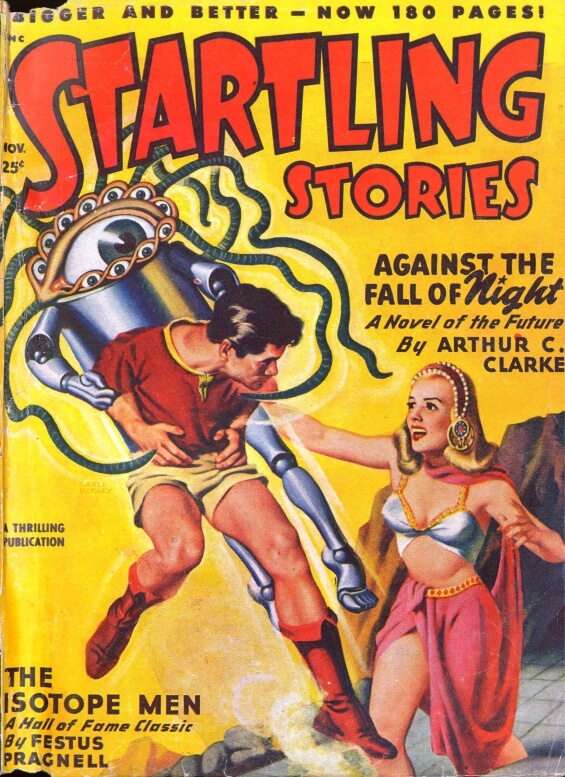
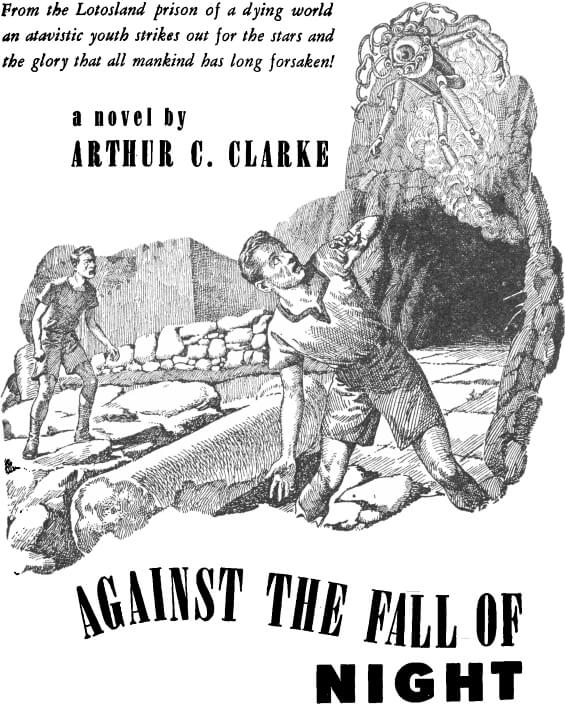
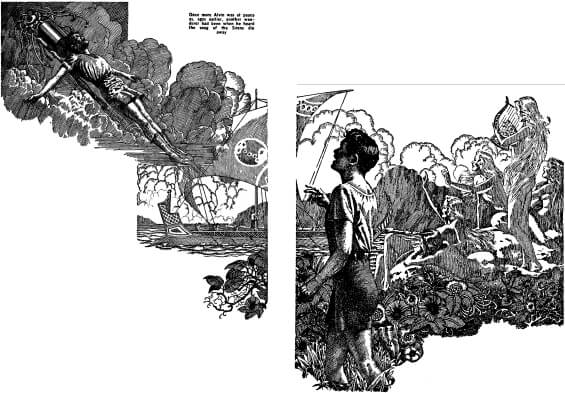
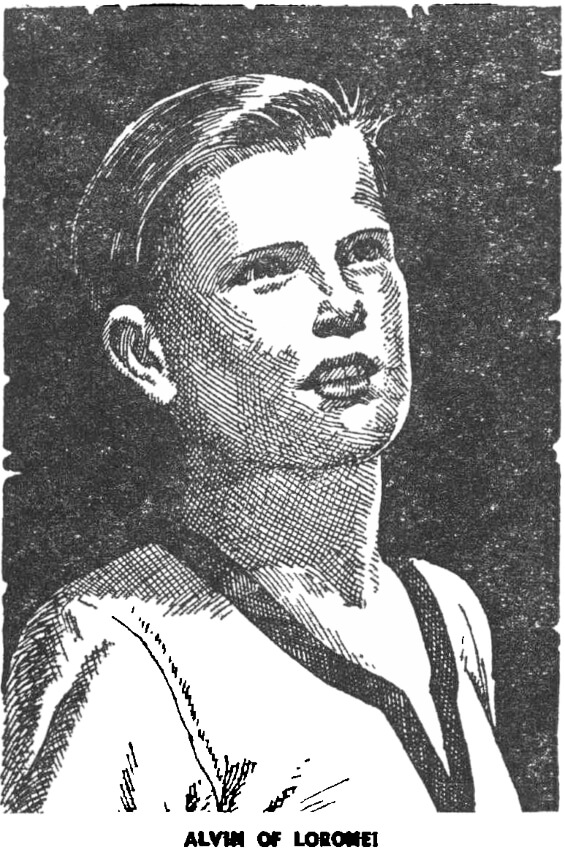

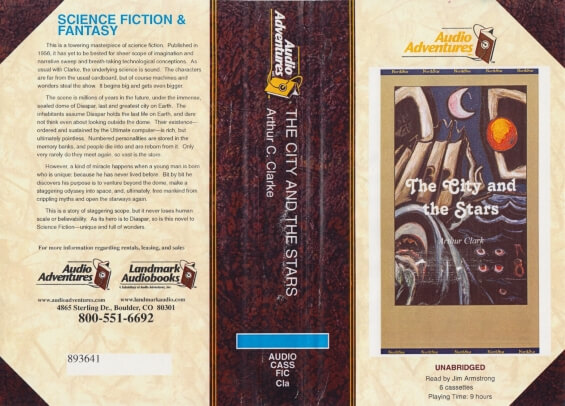
Posted by Jesse Willis

 Reading, Short And Deep #076
Reading, Short And Deep #076
Eric S. Rabkin and Jesse Willis discuss Gods’ Man by Lynd Ward
Here’s a link to a PDF of “the novel in woodcuts”.
Gods’ Man was first published in 1929.
Posted by Scott D. Danielson

 Reading, Short And Deep #062
Reading, Short And Deep #062
Eric S. Rabkin and Jesse Willis discuss My Last Duchess by Robert Browning
Here’s a link to a PDF of the poem.
My Last Duchess was first published in 1842.
Posted by Scott D. Danielson

 The SFFaudio Podcast #412 – Jesse, Paul Weimer, Marissa, Maissa and Bryan Alexander discuss Rite Of Passage by Alexei Panshin
The SFFaudio Podcast #412 – Jesse, Paul Weimer, Marissa, Maissa and Bryan Alexander discuss Rite Of Passage by Alexei Panshin
Talked about on today’s show:
1968, 1963, Paul’s suggestion, an antidote to Heinlein, an answer to Heinlein, Heinlein liberal?, Heinlein incestuous, Masqueworld books, clever and charming, anthropological SF, political SF, being good company, Doctor Who without the intelligence or capacity or Tardis, puckish satire, a pleasant smile of a book, Starship Troopers is to The Forever War as Tunnel In The Sky is to Rite Of Passage, Heinlein In Dimension, before the internet was a thing, a YA novel thirty years early, modern tech, attitudes, modern sexuality, Cory Panshin, a new wave SF piece, Ursula Le Guin, Russ, Frank Herbert, early Triptree, SF in the age of the sexual revolution, communal living, teen sex, squarely on the liberal side, Brave New World lite, history not SF, a girl instead of a guy, this is the spartan youth being trained to kill the helots, the genocide, the unexpected, “reprimanded”, Morlock, divided by caste, a eugenics officer, The Word For World Is Forest, a doomed society, Star Trek, Battlestar Galactica, like duh, Panshin’s response to Orphans Of The Sky aka Universe and Common Sense, a hollowed out starship, a generation ship, mutants, JoeJim, thoughtless religion, the ship society, don’t get too weird, the ancient Greeks, a trial or a test, boy-scouting trips, why isn’t the mom in here?, the men and women don’t live together, dormitories, the common room, the USA as Athens and the Soviet Union as Sparta, Athens is elsewhere, there’s no art, the mom is a sculptor, a kind of communist, how things work, technological know-how vs. physical means, all they need to do is have one defector with a thumb drive, one Edward Snowden, when is this book going to deal with that?, knowledge isn’t just a bunch of books, a set of skills, the expertise, George, blaming the colonist mud eaters, what do we think about the father, one of the two kings, earlier visits, kids are mean, unequal trade, how slowly the narrator learns, in the shadow of her father, always daddy, if Professor Eric S. Rabkin were here, internal exile, she has a romance with Peeta, the enforcer of rules, he freezing her, the tutor, we want them to be more opposite, the Romans, two consuls, rivals vs. enemies, moral discipline, Dune’s painbox, are you human?, winnowing your caste, time will tell, Havero – Have-arrow, Star Trek: The Next Generation, wearing pajamas, a useless therapist in the lounge, that’s what Star Trek: Deep Space Nine is for, turtle, ritual declarations of war, a war of one against the others, The Hunger Games, spacesuits were designed for war, the turtles and the tigers, stagnation, the last chapter, seeing it from the wrong perspective, bristling with nukes and planet killers, less Tunnel In The Sky than it is Universe, Forbidden Planet, a negative version of the utopia in Iain M. Banks’ Culture books, popular notes on Kindle, choosing to be smaller than you could be, a completely secular society, collective guilt, completely bullshit, Attila, it turns out Rod is black, not a racist thing, yes there is a time when we will destroy them completely but now they are useful to us, plowing ahead, an American thing, civil unrest, the War on Poverty, the 1960s, the Great Society program, “inner cities”, rural poverty, ships are like universities, cultured cities, riding roughshod over Appalachia, Deliverance, loving them their way, good bookstores and great libraries, the number of the universities, financial aid, an interesting echo, Binti by Nnedi Okorafor, part 3, the dissident dude who treats her like a daughter, “he gave me lessons”, “my first stop was the library”, books inside of novels: The White Way, “it has beed an interesting 42 years”, why is it winning a Nebula, fine tough minded people, on the water world, my dad is eighty, The Chromium Fence by Philip K. Dick, factional pogroms, what’s the point of that?, a pseudo-father figure, wha happn?, this is why sequels happen, is there never going to be a revolution?, enslaving the local humanoids, slaving, the great sin: breeding, discipline and trials kill a lot of the population, genre and popular concerns, The Population Bomb, the Club of Rome, Make Room! Make Room!, log cabins and sheriff’s offices, Earth went to pot, our heroine, being a spear-carrier, reading a book from the perspective of a spear carriers, an Austin Powers spear-carrier scene, it’s fun to hold a gun, a token of hope, she’s not the revolutionary we want her to be, a more searing indictment, Bryan doesn’t like YA fiction, Harry Potter, Bryan as Hagrid, a transition book, anti-colonialism, the US role in Vietnam, uprisings against the French, the Chinese, Avatar, inequality as a means for control, the anti-colonialists fail, the structure, a playful light tone, the epilogue, waking up out of a bubble, oh we’re doing that?, that’s my society doing that sort of thing?, you’re dad was alive during WWII, your dad was in the hitler Youth, oh yeah, Jordan Peterson, a depressing failure, reforms of her tutor, Revolt In 2100, Have Space Suit, Will Travel,
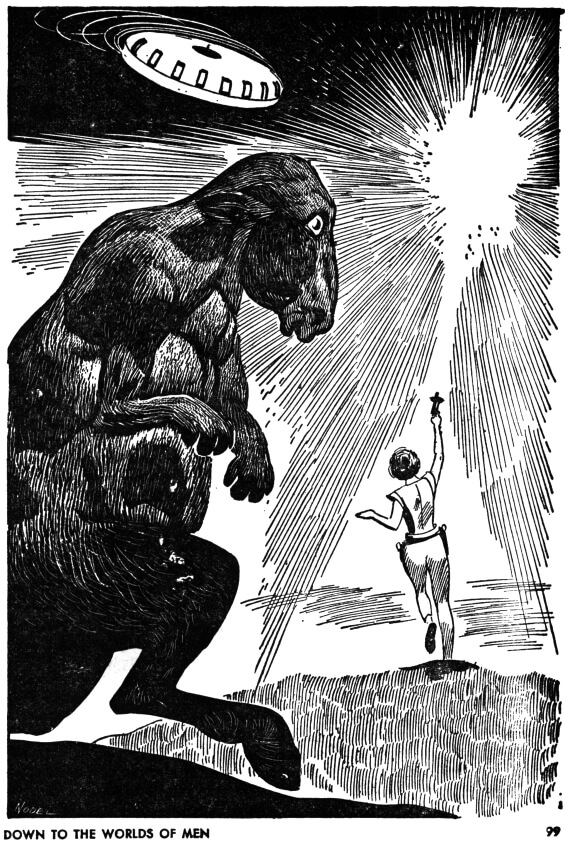
Posted by Jesse Willis

 Reading, Short And Deep #042
Reading, Short And Deep #042
Eric S. Rabkin and Jesse Willis discuss The Oval Portrait by Edgar Allan Poe
Here’s a link to a PDF of the story.
The Oval Portrait was first published as Life In Death in Graham’s Magazine, April 1842.
Posted by Scott D. Danielson